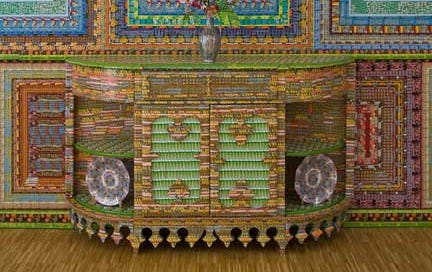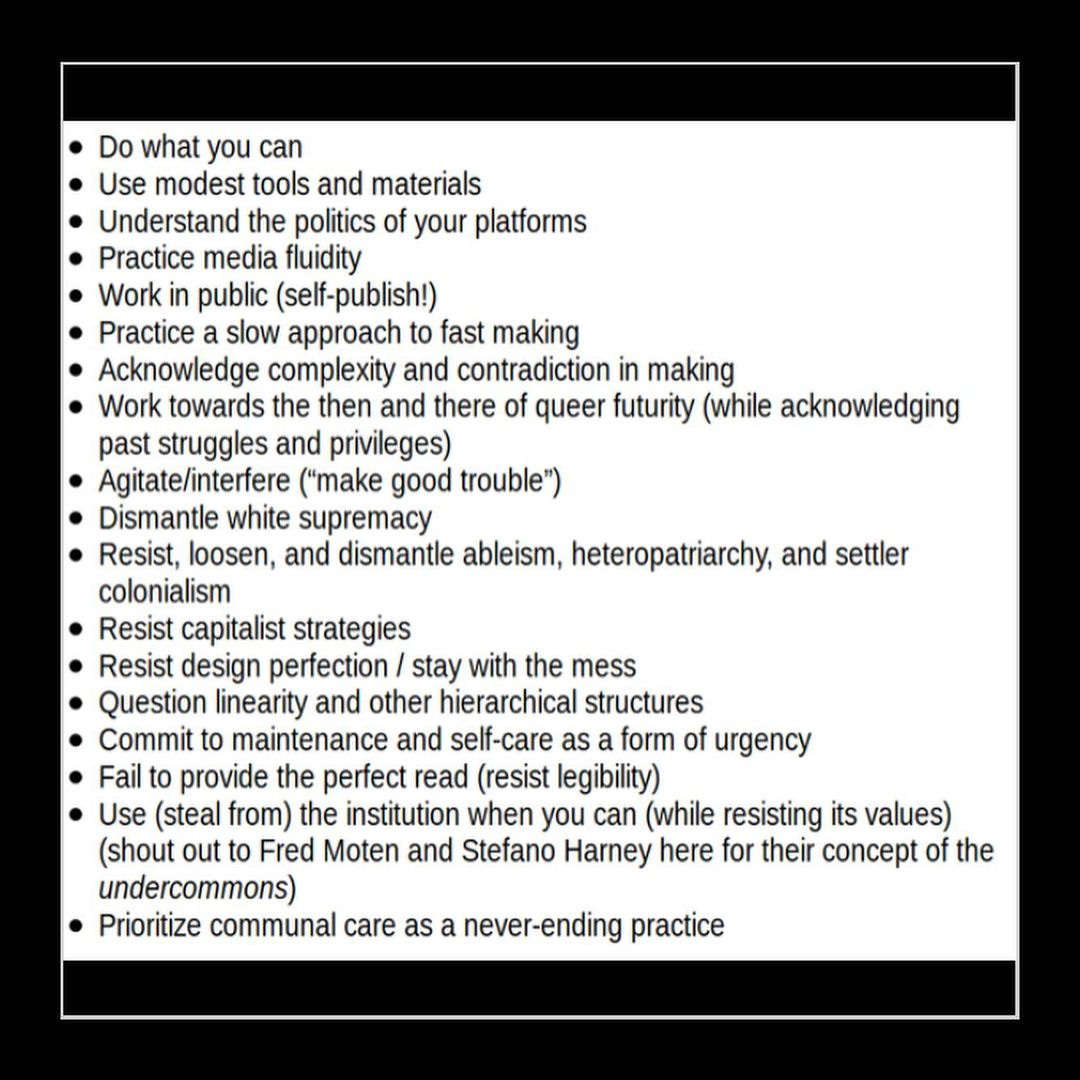
A stack of lottery tickets fell out of the birthday card and onto the beige table tucked at the far right corner of the narrow kitchen. The light peering in was brighter than it had been for months, fittingly announcing the first day of spring. After years of buying shirts, slippers, and pyjamas that eventually got returned to The Bay or Sears, and since Manu didn’t play golf, lottery tickets became the requisite birthday gift from his four daughters year after year.
They always bought a mix of Quick Pick tickets and a colourful variety of scratch game cards. On Tuesdays and Fridays, when the numbers were drawn from the ball machine, the six of them would gather around the TV to watch, clasping their hands with a reserved optimism of what could be. If they missed the broadcast, the Toronto Star that arrived on the doorstep the next morning would share them on page 2. All the tickets would be laid across the table, and carefully crosschecked with the winning numbers, once, twice, before being ripped up for the recycling bin. Often, they would match 3 of the 7 numbers, winning a free ticket into the next round of possibility, and when their numbers were a margin from the winning ones, they would sigh, ‘so close,’ even though they knew that was mathematically untrue.
The Bingo, Crossword, and Fruit Explosion scratch game cards were the most seductive under the blue glass case beside the cash register, dangling prizes of up to $75,000 in big gold type that blinded any sense of statistical analysis and made you feel like you were out in Vegas while at the Smoke and Gift in Bamburgh Circle. There was also the Cash for Life ticket, which if won, was kind of like having a really generous parent sending you a $1,000 allowance every week for just existing. In the event of beating the 1 in 3.46 million odds of Cash for Life, winners are offered two options: the weekly allowance, or a one-time lump sum that works out much less, presenting a familiar dilemma: live for now or plan for later. The only skill really needed to play scratch cards well was x-ray vision, but in the absence of that, a sixth sense for selecting a winning ticket was certainly handy.
‘Go ahead and scratch it,’ Tara said to Mira, her second youngest daughter, the next day after school as she ate a chocolate swiss roll in a silver vaatko. Without considering it was her Dad’s birthday present, Mira jumped up and grabbed a quarter from the bottom of the everything drawer, not one to shy away from a surprise. Each grind across the ticket revealed a number or symbol, and produced a great deal of debris that she methodically paused to brush away, as she searched for the door to another life; one where they were richer and she wouldn’t have to share a room or wear hand me downs anymore.
The games all had different rules that involved having a ticket with the right pattern. For instance, a box with two $25,000 symbols and another box with three $25,000 symbols and the word “GOOD” in yet another box was a winning ticket, but three boxes with three $25,000 symbols and the word “SORRY” was not. To decode the ticket, Mira flipped over the ticket about a dozen times to reference the rules, sending the debris even further into disarray.
Before they bought those tickets, many lotteries had already been won, even if they never spoke about them as such. Tara and Manu had won the visa lottery to move to ‘Canada’ from East Africa under the accountant professional designation Manu had acquired in Nairobi. The four kids won the birth lottery of a ‘Canadian’ passport that would mean they could more easily travel across the world. And they had all won the lottery of having what Mira’s teacher called an able-body and attending English-speaking schools; gifting them with a mobility that they wouldn’t be able to price if asked to. In the material world, where you were either getting ahead or falling behind, they had won the lottery, even if it came with the loss of ancestry, and compassion, family ties and solidarity.
‘I think we won something,’ Mira shouted to Tara over the fan as she flipped roti’s on the tawa and glazed them with ghee for dinner. Mira ran over to her to show the ticket and confirm that the pattern of ‘$25,000’ symbols matched the rules. Tara’s face instantly lit up. ‘Wow wow wow, this is such good news,’ she said, keeping her eye on the stove, but now smiling. She pumped her fist, like the athlete who had just crossed the finish line or goal post to congratulate themselves and undulate the feeling of victory. ‘Yayy,’ she sounded giddily, continuing to absorb their unexpected good fortune.
It was entirely rare to see Tara excited. She mostly travelled from task to task on the brink of agitation while getting the girls ready for school, making them hot lunches, dropping them to swimming and gymnastics, walking them to the library to exchange one pile of books for another, doing laundry daily to prevent a pile up, knitting sweaters for the colder months, sewing everyone’s ripped clothes to stretch them through another season, and cooking dinner every night before resigning to watching Zee TV in the evenings.
In that moment, Mira saw Tara drift into the fantasy that the winning lottery ticket unlatched; maybe it would mean a few weeks of not cutting coupons or having a night off from cooking to order takeout from Brar or Mama’s Pizza. Perhaps she could splurge on a sari, like the one’s Poorvi Auntie had closets full of or maybe she could visit her own mother in Mumbai, who she had not seen in over a decade. The prize money would be a new number in their bank account and also a way to relieve some of the feelings she had tightly wrapped into every open corner of her heart.
From the kitchen table where she returned to finish her snack, Mira was too consumed with watching her mom in a child like spell to have her own fantasies of getting a new denim jacket and PlayStation game with the prize money. She mostly knew Tara as the firm and serious parent, the one who made sure they finished their homework meticulously, ate almonds on the way to school for good brain health and said their prayers before eating breakfast. When any of her sisters brought a friend over, Tara was the first to identify all the ways they might eventually be bad news.
As a matter of procedure and like her Dad had taught her, Mira glanced at the ticket to triple check the pattern, when she noticed a discrepancy with the rules her mom and her had not spotted. The triad of $25,000 symbols were all there, but they were in the wrong box.
She looked up at Tara, who was now swaying her hips while finishing the rote work of making rotli, something she had seen her mom do at least a thousand times, and then looked back at the ticket. She couldn’t bear to tell her, and see her mother’s face break back into the ordinary, where she met and closed the day with the slowed breath of struggle. Like so many times before, Mira could feel her throat starting to close as she distanced herself from the truth, while the guilt shrunk her body into invisibility on the pleather benches that crunched with her every move.
By this point, they had discarded so many lottery tickets, the loss didn’t make much of a difference to Mira. For the first 6 years of her life, she didn’t even know they were unlucky. But that changed when her mom pointed out all the people ‘they were not like’ during the gheeboli at the temple during auspicious occasions, where only the highest bidders were allowed on stage for the ceremony. If Mira ever asked why this was the case, her mom simply replied, ‘that’s your karma,’ and that was that. Based on her mom’s response, Mira came to understand that the lottery ticket was perhaps the only way they knew how to reverse this seemingly bound fate and that their luck could not be made, only bought at the corner store.
Much love,
Hima xxx
Innerwebs + Interwebs
Reading: Finally started A Place for Us by Fatima Farheen Mirza, which opens with the scene of Hadia’s wedding, where her estranged brother Amar has come home after what seems like a long time and I have already cried twice 50 pages in. I’m almost done Detransition, Baby, and it is brilliant. Required reading as we continue to blow up the edges of gender constructs and family structures.
Watching: Ciaran and I finished all three seasons of Manifest and even though a lot of it was painfully bad and was steeped in carceral honour the badge BS, the clash and relationship between science and spirituality that is explored in the show is one that I think will continue to confront us culturally in the days, months and years of making sense of the pandemic.
Events (Tkaronto):
Reset is hosting an end of summer phone-free silent disco party on Sept 25. If you haven’t done silent disco before - in short, there are three channels on the headphones, and each one is a party and experience unto itself. You get the perfect balance of being in your own world and connecting with others. Stay tuned for DJ + Artist announcements. There is lots to still release (forever) and dance is a/the way.
Cultural queen, Raji Aujla, has curated an exhibition as part of ArtWorxTO, called chashm-e-bulbul that explores the erasure of Sikh grandmothers in historical records that I’m looking forward to visiting north sides for. The show opens on Sept 22 at Bayview Village and runs until Dec 31.
Ciaran and I are going on a forest therapy night walk at High Park on Sept 17. Come with!
We went rollerskating at Scooters for my friend Romana’s birthday, and I’ve found my fall flex. The Bentway is having a skate sale this Sunday at 1pm and even though I’m late on the Fleetwood Mac, Dreams, rollerskating videos, I’m definitely getting a pair!
Mental Health Check: I deleted TikTok from my phone for like the 10th time this year and I really just need a long, long, like 5 year break from the Internet and holding a phone. This is all to say I had a bunch of TikToks I wanted to share but now I can’t and consider this a break for you too.
Life Principles: We generally all have a set of principles that we live by, whether we ever compile them into a cohesive form or not. I like the idea of this exercise and was inspired by Patrisse Cullors-Brignac who recently shared her '12 steps to changing yourself and the world,’ which she is turning into a book. In the absence of culling my own from journals over the years — which would definitely include not EVER mixing dairy and alcohol and play with my hair if you love me — I like this list published by @aredotna as a starting point:
Twisdom: There are a lot of human metaphors in the video below. Watch it and find yours.

If you value what you read and would like to support my work, consider Buying Me A Coffee, leaving a heart/comment on this post below, or sharing this journal with another human. THANK YOU, LOVE YOU






